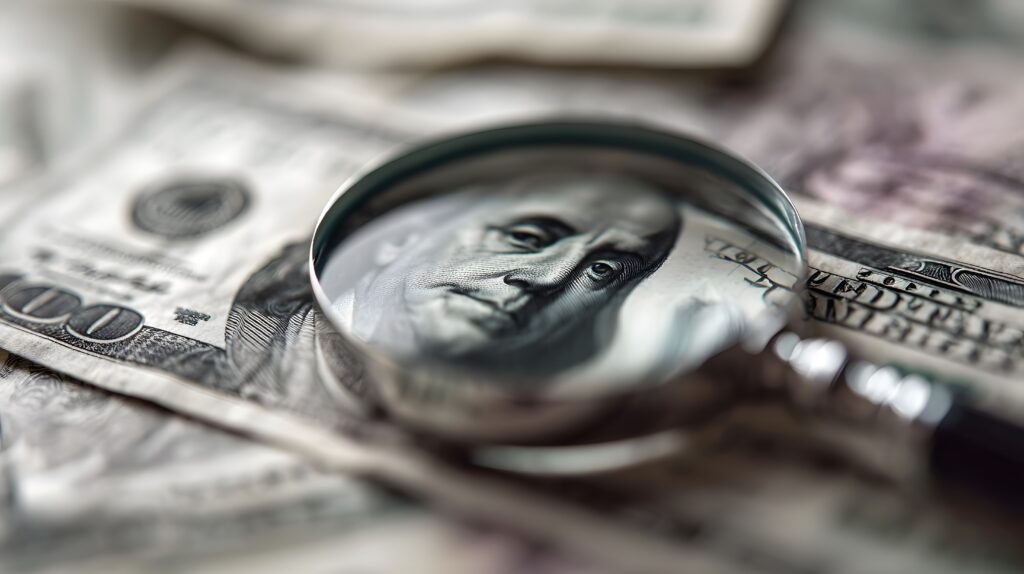When businesses enter into litigation—whether due to contract breaches, shareholder disputes, fraud allegations (including embezzlement, internal theft, and payroll fraud), or catastrophic events—the question often turns to economic damages.
How much has the company lost? How can those losses be proved convincingly in court?
This is where forensic accountants play a crucial role. They combine investigative skills, financial expertise, and litigation support experience to quantify damages in a way that withstands legal scrutiny.
What Is Forensic Accounting?
This work goes beyond business valuations or general auditing. Forensic accounting is an investigative process that digs into the economic realities behind a business dispute. These types of accountants can interpret financial data, uncover hidden trends, and provide clear, defensible analyses that attorneys and judges can rely on. Their work can help form the foundation for quantifying damages and offering objective calculations.
These professionals are useful to either side of a business case during legal proceedings, such as fraud investigations or when financial misrepresentations and irregularities are suspected. They can be brought on proactively (similar to an internal audit) or for more personal cases, such as divorces, business breakups, and partner disputes, when asset tracing—uncovering the movement, true ownership, and current status of assets—is needed.
Why Hire a Forensic Accountant?
Forensic accountants are asset detectives, but their role as expert witnesses is equally important. In litigation, proving damages requires a credible and methodical approach. Courts expect not only accurate figures but also explanations of how those figures were derived. For this reason, forensic accountants can work in conjunction with business valuation experts and a legal team to build a case that can withstand scrutiny.
Take a look at this cautionary tale we shared a few years ago involving a $56.3 million award for business losses, which was overturned entirely (resulting in no award) by the Texas Supreme Court in 2022.
“Even the ‘easy route’ of lost profits can be difficult to prove. In a 2015 ruling, the Texas Supreme Court held that ‘lost profits can only be recovered when the amount is proved with reasonable certainty. Proof need not be exact, but neither can it be speculative.’ Of course, the definition of ‘reasonable certainty’ is itself ambiguous,” we shared. “Sometimes knowledgeable analysis is necessary to pass scrutiny and reduce overvaluation, too…In these cases, forensic accounting and business valuation work hand in hand.”
How Does a Forensic Accountant Compare to AI?
Something new to address since our last coverage of this area: AI analysis. Sure, it’s fun and convenient to kick around theories and hunches with ChatGPT, but if you’re a legal expert yourself, you don’t need us to tell you that doing so and using AI-generated conclusions—particularly in litigation—can be quite problematic.
While we’re moving into a time when AI-generated evidence may soon be submissible in court as expert testimony, doing so without the review of human expert witnesses, including a forensic accountant to connect the dots, is a dangerous endeavor. Can AI help sift through giant amounts of data? Maybe. But drawing conclusions that are analytical, persuasive, and credible is essential.
How Do Forensic Accountants Quantify Damages?
The methodology forensic accountants use depends on the type of case, but common techniques include a calculation of lost profits, impact to the value of the business, what the conduct or event has cost the business, and comparison of the performance of the affected business against industry standards.
Each method requires meticulous review of financial documents such as tax returns, profit and loss statements, payroll reports, contracts, billings and invoices, and budgets. Forensic accountants frequently integrate economic data, market research, and statistical modeling to strengthen their findings.
In the end, proving economic damages is as much about credibility as it is about numbers. Judges and juries want proof that is concrete, defensible, and grounded in reality—not speculative claims or convenient estimates. That’s why forensic accountants remain essential in proving economic damages: they provide the disciplined analysis, rigorous documentation, and expert testimony that can stand up to scrutiny.
Feel free to contact us with questions.


